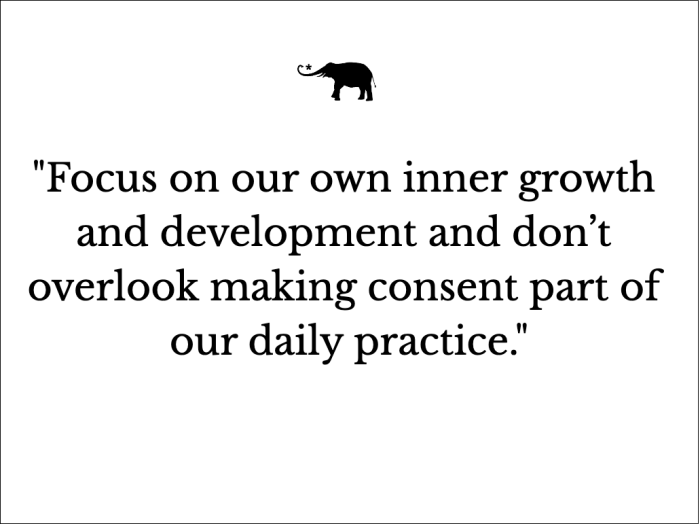The world joined together in a collective moment of cringe when a recent video of the Dalai Lama asking a young boy to “suck his tongue” went viral. My desire to reach through the screen and immediately remove this child from the inappropriate situation was overwhelming. If you watched the video (warning), it may have been hard not to recoil.
And then, the feelings of disgust and disappointment began to settle in.
The Dalai Lama is a spiritual leader revered by many around the world for his teachings of compassion, mindfulness, and peace. His wisdom has inspired countless people to lead more meaningful and purposeful lives, and his influence has extended far beyond his own Buddhist tradition. He describes himself as “a simple Buddhist Monk” and travels the world teaching messages of compassion, comfort, kindness, peace, and universal harmony.
He is typically seen as a beacon of hope in a troubled world.
How did we end up here?
An already troubled world now with amplified troubles because of the actions of a “simple monk.” The truth is, despite his lofty status, the Dalai Lama is still a human being, subject to the same flaws and imperfections as any of us.
I am in no way a pedophile sympathizer. Quite the contrary. What I mean is that amidst the waves of repulsion, I had a realization that even the most revered spiritual leaders are not infallible.
By recognizing that even the most spiritually advanced individuals are still human beings with flaws and imperfections, we can avoid putting them on a pedestal and setting ourselves up for disappointment when they inevitably fall short of our expectations.
Surely the Dalai Lama is not the first spiritual teacher to display their shortcomings. Beginning in 2010, Krishna Pattabhi Jois was famously accused of sexual assault by his female students. This revelation [first exposed on Elephant] rocked the yoga community. Oftentimes the word “guru” through the Western lens translates as untouchable celebrity and many of Pattabhi Jois’ students admit to choosing silence because of this belief.
Victim of the same, I too have been assaulted at a yoga retreat by a “guru” who asked me to stay behind to further share their teachings. In all my 20-year old naivety, I trustingly stayed after everyone else had left and ended up being trapped and physically assaulted until I was lucky enough to escape the situation.
What I am understanding now is that just because someone is a spiritual leader doesn’t mean that everything they say or do is automatically worthy of emulation. It’s important to practice discernment and critical thinking. While spiritual teachings can be a valuable guide, it is up to each of us to find our own path and develop our own spiritual practice.
Integrate the insights and teachings of spiritual leaders like the Dalai Lama into our own lives, while also remaining grounded in our own experience and understanding.
So how can we separate the prophet from the person? Focus on our own inner growth and development and don’t overlook making consent part of our daily practice.
Separating the prophet from the person requires a combination of critical thinking, discernment, and a willingness to acknowledge the flaws and imperfections of not just ourselves, but even the most revered spiritual leaders. By focusing on the essence of the Dalai Lama‘s teachings and by cultivating our own inner wisdom and compassion, we can better integrate his insights into our own lives and become more mindful, compassionate, and peaceful individuals.
For more:












Read 0 comments and reply